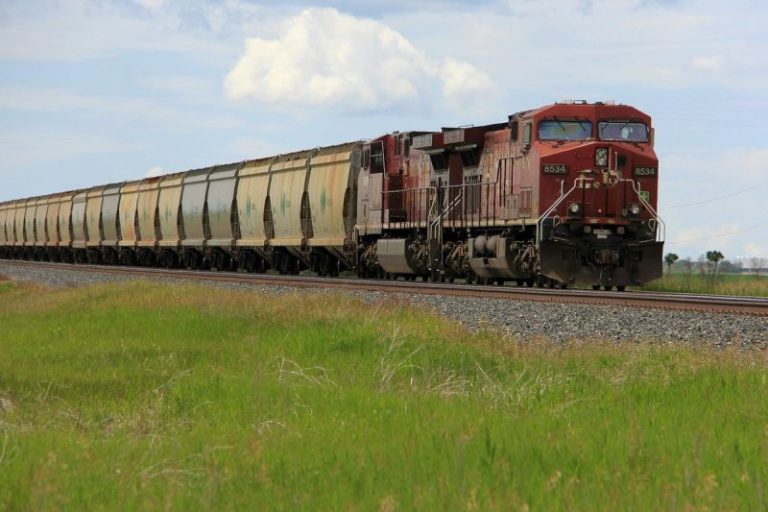Potash, Oil, and Metal Shipments Halted as Canadian Rail Workers Locked Out
The Canadian rail industry is facing significant disruptions as rail workers across the country have been locked out, leading to the halting of potash, oil, and metal shipments. This move has raised concerns about the impact on various sectors of the Canadian economy and the potential implications for global supply chains.
Potash, a key ingredient in fertilizers, is a critical component of the agricultural industry. The lockdown of rail workers has led to delays in the transportation of potash from production facilities to distribution centers and ultimately to farmers. This disruption has the potential to affect crop yields and prices, impacting not only farmers but also consumers.
The oil sector is also feeling the effects of the rail worker lockout. With the inability to transport oil via rail, companies are facing challenges in getting their products to refineries and markets. This disruption could lead to an oversupply of oil in certain regions, affecting prices and market dynamics.
In addition to potash and oil, metal shipments have been impacted by the lockout of Canadian rail workers. The transportation of metals such as iron ore, aluminum, and copper is vital for various industries, including construction, automotive, and electronics. The delays in metal shipments could lead to production slowdowns and cost increases for businesses that rely on these materials.
The lockout of rail workers in Canada has raised concerns about the stability of global supply chains. Canada is a significant player in the transportation of commodities and goods, with its rail network serving as a key link in connecting producers and consumers around the world. The disruptions caused by the lockout highlight the vulnerabilities of supply chains that rely heavily on rail transportation.
The impact of the rail worker lockout extends beyond the industries directly involved in the transportation of potash, oil, and metals. The ripple effects of these disruptions are likely to be felt throughout the economy, affecting businesses, consumers, and the overall stability of the Canadian economy.
In response to the lockout, there have been calls for negotiations between the rail workers and management to resolve the issue and resume operations. The government is also being urged to intervene to mediate the dispute and prevent further disruptions to the economy.
As the situation unfolds, it is crucial for all stakeholders to work towards finding a solution that ensures the resumption of rail operations and minimizes the impact on the Canadian economy and global supply chains. The lockout of Canadian rail workers serves as a reminder of the importance of a reliable and efficient transportation network in sustaining economic growth and prosperity.



